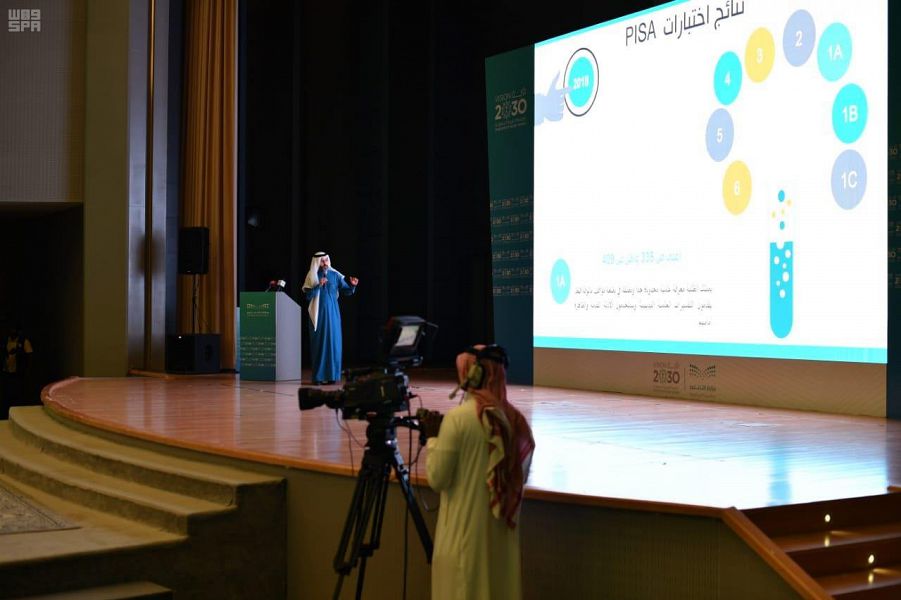
JEDDAH: Saudi Arabia’s strategy of diversifying its economy and reducing dependency on oil is creating new career paths for the Kingdom’s chemical engineers, according to one industry leader.
Ahmed Khogeer, chair of the fuels and petrochemicals division (F&PD) at the American Institute of Chemical Engineers (AIChE), said that Saudi Arabia’s efforts will not only provide independence from the effects of fluctuating oil prices but also deliver more jobs and support to businesses.
Khogeer, the first non-American to chair the division in the institute’s 11-decade history, added that most countries have plans to reduce the use of fossil fuels and encourage renewable energy sources.
“Currently, Saudi Arabia is burning valuable oil, condensates and gases to provide power and desalination. Gas is the optimal feed for the petrochemical industry and, without it, new petrochemical plants need to crack liquid oil products to produce petrochemicals, which is more expensive and less efficient,” he told Arab News.
The Kingdom’s utilization of renewable energy sources, such as solar or wind, and energy-saving efforts, such as new tariffs and high-efficiency appliances and vehicles, will spare valuable amounts of gas to produce high-value petrochemicals, Khogeer said.
Speaking to Arab News about the impact of the coronavirus pandemic on the petrochemical sector, Khogeer said: “The industry is cyclical in nature — it goes through peaks and troughs about every seven years. However, in the case of COVID-19, it was a surprise to global markets. Many industries suffered from the decline in commuting and transportation. This affected the demand for fuels, including motor fuel, jet fuels and marine.”
Saudi Arabia’s efforts will not only provide independence from the effects of fluctuating oil prices but also deliver more jobs and support to businesses.
Ahmed Khogeer, Chair of the fuels and petrochemicals division at the American Institute of Chemical Engineers
On the other hand, there has been a slight increase in residential electricity demand because of stay-at-home orders, he said.
“The petrochemical industry was severely affected. In the fuels and petrochemicals division, we had the goal to provide assistance to the engineers who were affected by the pandemic or lost their jobs due to business slowdown, providing guidance and assistance using our large network of members,” he said.
The F&PD had made similar efforts after devastating hurricanes struck the southern US coastline.
“At this time, the division is focusing on US industries even though it is the vision and goal of both the division and the institute to be the global home for chemical engineers,” he said.
Khogeer said that about 80 percent of oil production is used globally as fuels, with 70 percent used in transportation fuels such as gasoline, diesel and jet fuels. The other 10 percent is marine and heavy fuels.
“This makes fuels the most important use of oil, but not necessary the most profitable,” he added.
Khogeer expressed his pride at being elected for the new position at the AIChE, calling it “a great honor and a step in assuming the role in which our country and the region should lead.”
“We are leaders in the production of oil, fuels and petrochemicals, yet there was no presence of any Arab entity or engineers in the leadership of the AIChE’s fuels and petrochemicals division. Our region has plenty of expertise and potential that can provide many lessons learned and valuable advice to the chemicals industry,” he said.
Khogeer said that one of his goals is to extend the division globally, describing F&PD as “a valuable source of knowledge and expertise in the fields of gas, refining, fuels, and petrochemicals.”
Some members had published textbooks that are used by almost all chemical engineering departments, he added.
“Other members are famous for inventing refining and petrochemical processes that are used worldwide, including in our country. F&PD can easily connect our leaders with world-class engineers and professors,” he added.
“We had success extending the efforts of the AIChE itself globally by establishing contacts with local industries and universities, and establishing local sections and student chapters,” he said.
The institute had offered many technologies and services to local companies, helping to enhance safety and operations at process plants.
“One example was introducing the Center for Chemical Process Safety (CCPS) to Aramco about 10 years ago. CCPS is one of AIChE branches and is well known as a wealth of knowledge and experience in the field of process safety. I am now glad to see many engineers from our country attend training courses at CCPS, and CCPS experts coming to Saudi Arabia to participate in local meetings and conferences,” Khogeer said.
Highlighting the regulation governing the nomination and election process at AIChE, he said that F&PD is the largest and the most important division in the institute.
“Membership includes top-notch professors and engineers from leading US universities and world-class energy, design and engineering companies. There are bylaws that govern the nomination and election process. Positions are decided by voting,” he said.
Candidates must have lengthy membership in the division, experience chairing sessions in international conferences and judging scientific papers, a history of volunteer work, and strong knowledge of at least some aspects of the fuels and petrochemicals industry.








